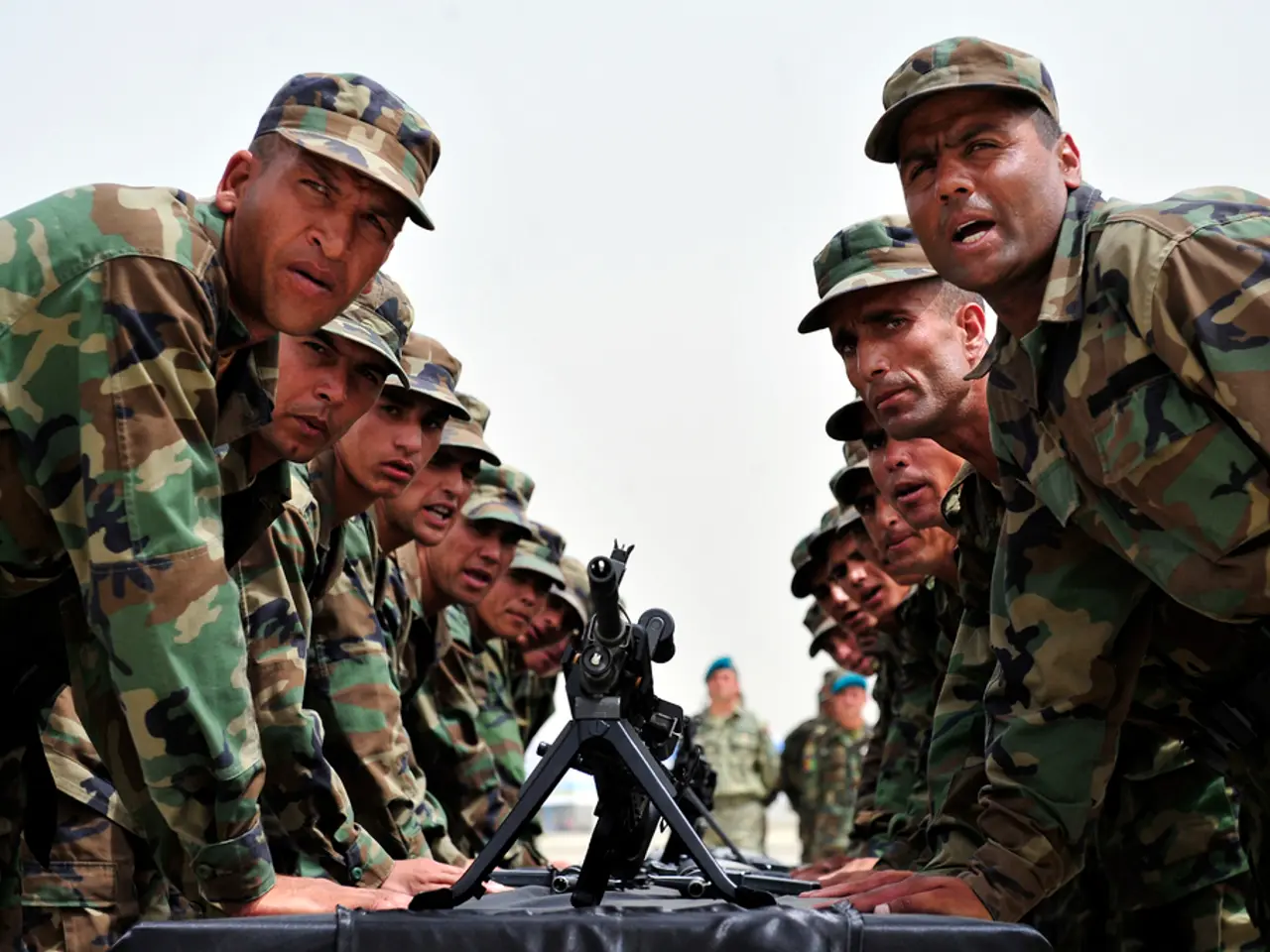Political-Military Discrepancy: Origins and Strategies to Align Politics and Military Operations
In a world where technology continues to advance at an unprecedented pace, the use of high-tech approaches in warfare has become increasingly popular. However, a new open letter authored by scholars Kerry Chávez and J Andrés Gannon raises concerns about the potential risks and limitations of this bias towards high-tech warfighting.
The letter, published in 2022, underscores the importance of mutual trust and a balanced exchange between civilian leadership and military authorities. It emphasises that civilian leaders have the right to make decisions, even if they may not align with the advice of military experts. However, it also highlights the responsibility of military leaders to inform and enrich civilian decision-makers, and for civilian leaders to resource and constrain the military to ensure they stay aligned with strategic and political goals.
The scholars argue that the integration of advanced technologies, driven by Silicon Valley interests, has led to an emphasis on faster, more precise targeting and combat capabilities. This focus on high-tech solutions can create dependencies on complex systems that may fail in unpredictable ways, potentially escalating conflicts or making wars more deadly without securing lasting political outcomes.
Moreover, the reliance on AI and automated decision-support tools introduces biases such as automation bias, where operators may over-trust flawed AI recommendations, leading to flawed decisions in high-stress conflict environments. This technological reliance may undermine the nuanced, human-centric approaches necessary for political success in unconventional warfare, which demands understanding local populations, governance structures, and political legitimacy.
The apparent bias towards high-tech approaches in US warfighting also stems from political and executive pressures that align the military more closely with technological modernization efforts, potentially at the expense of broader strategic and political considerations. This trend is further reinforced by military-industrial and techno-military elites who envision a future of warfare dominated by semi-autonomous systems and artificial intelligence.
The letter also touches upon the issue of outsourcing costs and risks to private military companies for unconventional conflicts. While this approach can supplement or stand in for state force, it raises questions about accountability and the potential for these companies to prioritise profit over the protection of civilians.
In conclusion, the US's bias towards high-tech warfighting reflects a confluence of military-industrial interests and executive-driven modernization that prioritises technological superiority. However, this focus on technology poses risks for achieving political objectives in unconventional conflicts due to system complexity, unpredictability, and over-reliance on automation. It is crucial for civilian leadership and military authorities to maintain a balanced exchange and for civilian leaders to authentically evaluate prudent options submitted by military authorities to ensure the successful achievement of political objectives.
References: 1. Chávez, K., & Gannon, J. A. (2022). An open letter on civil-military best practices. Texas Tech University. 2. Krepinevich, A. (2011). The rise of net-centric warfare: Transforming the U.S. military and the future of war. Center for Strategic and International Studies. 3. Singer, P. W. (2009). Wired for war: The robotics revolution and conflict in the 21st century. Penguin Press.
- The open letter published by Kerry Chávez and J Andrés Gannon in 2022 stresses the significance of a balanced exchange between civilian leadership and military authorities in war-and-conflicts, including the responsibility of military leaders to inform and enrich civilian decision-makers.
- The letter argues that the integration of advanced technologies, driven by Silicon Valley interests, can lead to an over-reliance on high-tech solutions in military strategies, which might increase the risks of conflicts escalating or becoming more deadly without securing lasting political outcomes.
- In addition, the reliance on AI and automated decision-support tools for military operations can introduce biases, such as automation bias, that may result in flawed decisions in high-stress conflict environments.
- The document also brings up concerns regarding the outsourcing of costs and risks to private military companies for unconventional conflicts, questioning the accountability of these companies in protecting civilians.
- The letter, referencing works by Krepinevich and Singer, suggests that the US's emphasis on high-tech warfighting is a result of military-industrial interests and executive-driven modernization, potentially hindering the achievement of political objectives in unconventional conflicts due to system complexity, unpredictability, and over-reliance on automation.






